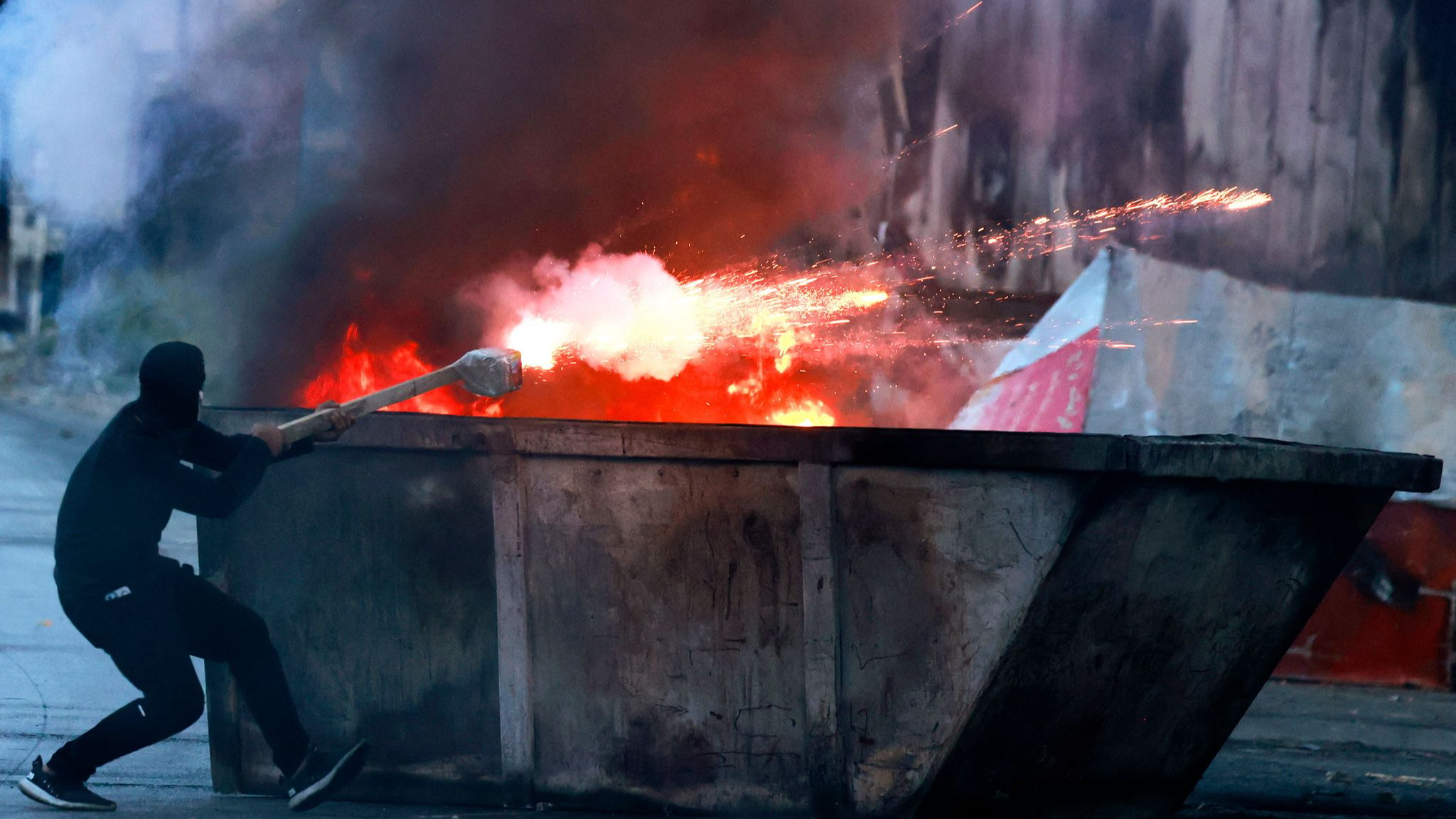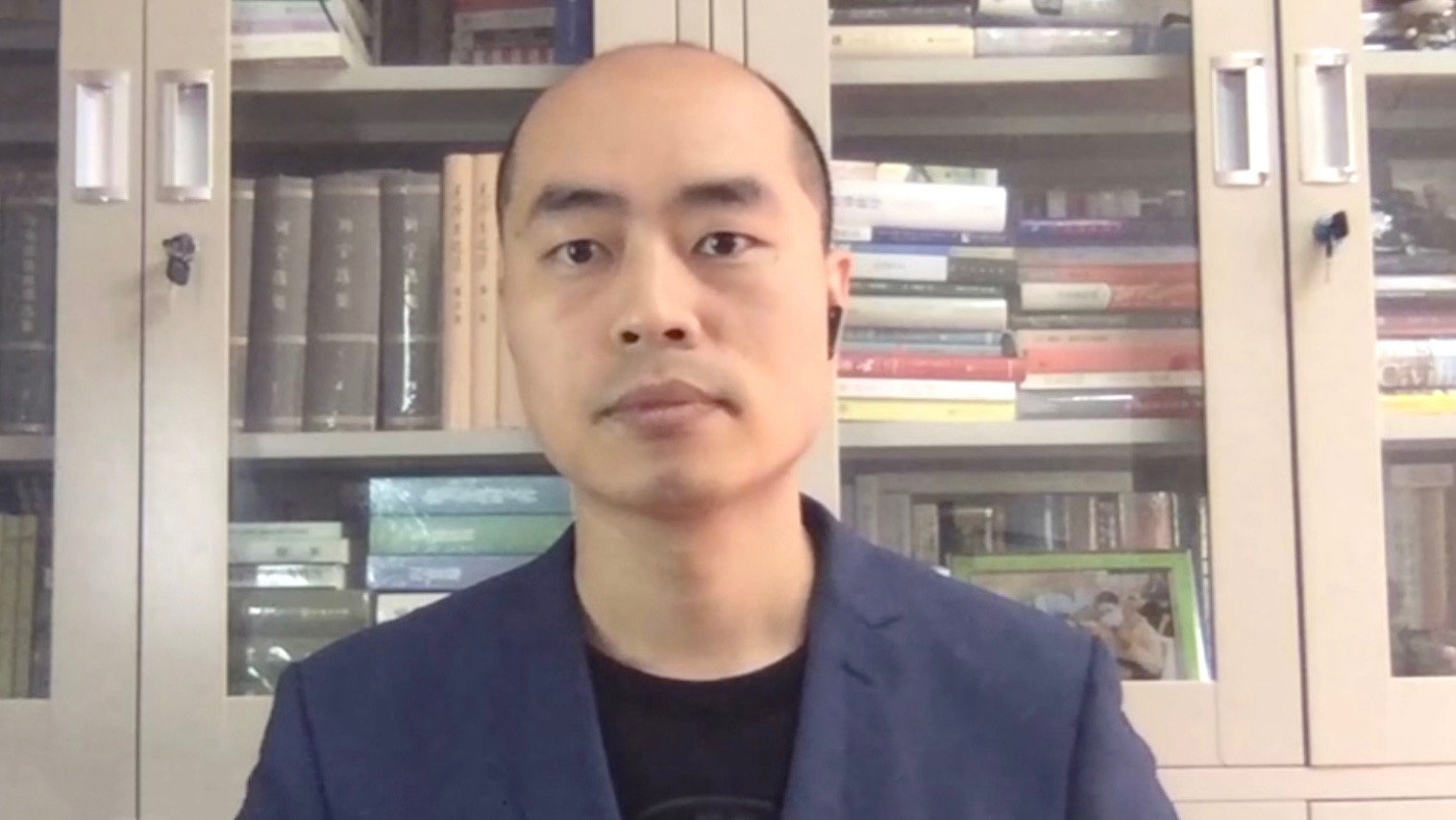Before Hamas' unprecedented attack on Israel on October 7, the last war between the two took place in 2021 – it lasted 11 days and killed at least 250 people in Gaza and 13 in Israel. Israel's large-scale offensives against the Palestinian Islamic Jihad in August 2022 and May 2023 also did not last long. But this time around, experts say, the conflict will linger on.
The surprise attack
The latest assault occurred around the 50th anniversary of the 1973 war, when Israel's Arab neighbors launched a surprise attack on Israel on Yom Kippur, the holiest day on the Jewish calendar, on October 6, 1973.
Hamas said its offensive by land, air and sea was in response to the desecration of the Al Aqsa Mosque as well as Israeli atrocities against Palestinians over the decades.
An editorial in Ha'aretz newspaper on Sunday criticized the Israeli security forces for what it deemed an "intelligence and military failure."
Israeli analysts say Hamas has carefully planned the military operation. Yoel Guzansky, a senior researcher at the Israel Institute for National Security Studies, told Xinhua News Agency that Hamas' preparation for the military operations is "estimated to have taken several months."

A Palestinian protester aims flares at Israeli troops amid clashes in Ramallah in the occupied West Bank on October 9, 2023. /CFP
A Palestinian protester aims flares at Israeli troops amid clashes in Ramallah in the occupied West Bank on October 9, 2023. /CFP
Longer than previous conflicts?
The conflict will not stop in the short term because Israel has not yet taken its revenge, as it has suffered more losses than in all the Gaza conflicts since 2008, Dong Mengyuan, a researcher on Middle East issues at the China Institute of International Studies (CIIS), told CGTN.
Hamas now also has leverage since dozens of people are believed to have been captured in Israel by Hamas, suggesting that Hamas will be at standoff with Israel for some time and have negotiations, Dong said.
The issue of imprisonment by militants is a matter of public concern in Israel. In 2006, Israel freed over 1,000 Palestinian prisoners, including hundreds serving life sentences for attacks on Israelis, in exchange for Israeli soldier Gilad Shalit who was captured by Hamas.
"The Israeli side suffered a major setback, not only in terms of casualties, but also in terms of the psychological impact on Israelis," said Li Guofu, a senior research fellow at the CIIS.
Given the scale and brutality of the attack, experts say that Israel may launch a ground invasion in Gaza in addition to the airstrikes the military is already conducting.
Li said that after Netanyahu vowing "mighty vengeance," ground invasion of Gaza was "highly probable." "But the Israeli side also has to weigh the economic, political and international humanitarian burden of occupying Gaza."
"Besides, the likelihood of Hezbollah's involvement is indeed a possibility," Li said. "Most Arab countries now are calling for restraint. If Israelis do further harm to the Palestinians, it will pay a political and diplomatic price."
Echoing Li, Dong said that if Israel launches a ground operation to push back Hamas, Lebanese Hezbollah forces may intervene.
On Sunday, Lebanon's Hezbollah said that it targeted Israeli military positions in the disputed Shebaa Farms "in solidarity" with the Palestinians.
Further escalation between the two sides would be inevitable since the Israeli government will take revenge. Attacks from the Israeli government and military forces will lead to many more civilian deaths from both sides and get attention from the world, said Wang Jin, an associate professor with Northwest University in Xi'an.
09:20

Palestinian question back on the table
Many analysts and media outlets have suggested that the surprise attack could undermine the budding normalization of relations between Israel and Saudi Arabia.
"Hamas now wants to highlight the importance of the Palestinian question and draw international attention to it," Dong said.
In the wake of the attacks, Chinese Foreign Ministry on Sunday emphasized that "the protracted standstill of the peace process" cannot go on, adding that "the fundamental way out of the conflict lies in implementing the two-state solution and establishing an independent State of Palestine."
The repeated conflict between Palestine and Israel are fundamentally due to the fact that the Middle East peace process has deviated from the right track, that the basis of the two-State solution has been continuously eroded and that the relevant United Nations resolutions have not been effectively implemented, Zhang Jun, China's permanent representative to the United Nations, said on Monday, calling for efforts to push for the two-state solution with a sense of urgency.
"It will give new obstacles since the conflict add new hatred and new distrust. But also, in my personal view, it will give new hope since the conflict will make Israel realize that the Palestinian issue is still there and they have to make concessions and rethink their policy against the Palestinians," Wang told CGTN.


